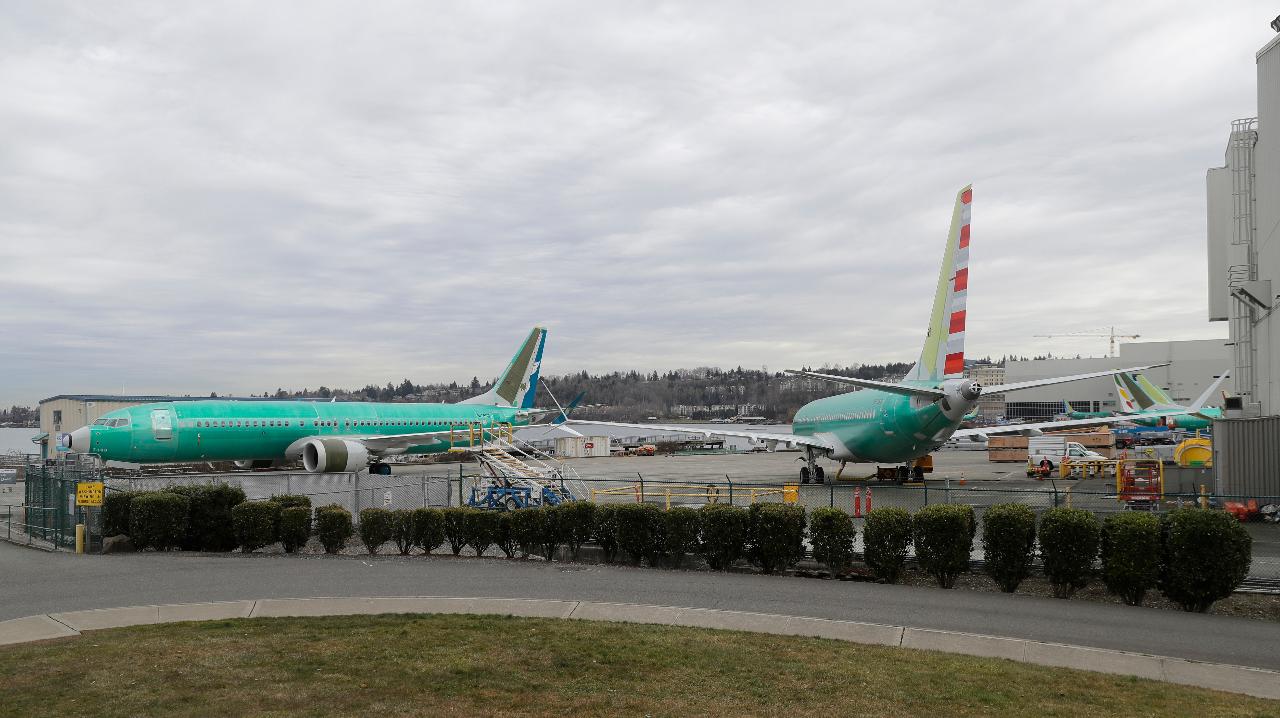FAA delegated portions of Boeing’s Max Jet review to company
The Federal Aviation Administration delegated some aspects of the approval of Boeing’s 737 Max jet to a company designee, according to the agency’s acting director, but government officials were “directly involved” in the review.
"This is not self-certification; the FAA retains strict oversight authority. The program allows the FAA to leverage its resources and technical expertise while holding the applicant accountable for compliance," Daniel Elwell told the House Transportation Committee's aviation panel on Wednesday.
The FAA uses "many variables," including policy knowledge, to determine how involved the designee is in the review and how much government participation is necessary. The agency "only grants this authorization to mature companies with a proven history of designing products that meet FAA safety standards," according to Elwell.
The comments come as lawmakers scrutinize the federal clearance process for the update to Boeing’s most popular plane and press reports suggest the FAA, through its own internal assessments, determined that it failed to adequately assess a new flight control system on the fleet that led to two recent crashes.
Both Elwell and Robert Sumwalt, chair of the National Transportation Safety Board, said they were not aware of the assessment reported by the Wall Street Journal.
Known as the Maneuvering Characteristics Augmentation System (MCAS), the new technology included on the Max operates as something akin to an auto-pilot system that can press the nose of the plane down at takeoff to prevent stalling.
In both the Ethiopian Airlines and Lion Air crashes, erroneous data from the sensors that track the angle of the Max activated MCAS and the pilots were unable to manually override the decline.
The FAA conducted 297 test flights, including with the MCAS functions, and officials were involved in the evaluation of the new system, Elwell said. The agency is still awaiting the final software update from Boeing to correct the issues with the Max.
| Ticker | Security | Last | Change | Change % |
|---|---|---|---|---|
| BA | THE BOEING CO. | 243.03 | +6.08 | +2.57% |
Both the House and Senate transportation panels are investigating the crashes, specifically the FAA approval process for the upgraded fleet. Rep. Rick Larsen, the Washington Democrat who heads the House aviation subcommittee, said there would be a "series of hearings" on the issue.
"The committee will not hesitate to act to ensure the safety of the U.S. aviation system," he said on Wednesday.
Meanwhile, the top Republican of the full House Transporation Committee cautioned against swift action. We should wait for facts, not "panicked desire just to do something," Missouri's Rep. Sam Graves said at the hearing.
Countries around the world have grounded the Max fleet, leading to flight interruptions at domestic carriers including Southwest Airlines and American Airlines. Both have warned customers that potential delays or cancellations could last until August.
The FAA will meet with global aviation authorities on May 23 to discuss when the jet will return to service.
CLICK HERE TO GET THE FOX BUSINESS APP
Boeing previously disclosed that it knew of an issue with the angle of attack disagree alert, which serves as a notification for pilots when there are discrepancies between those sensors that track lift, for nearly a year before the first crash but said it "did not adversely impact airline safety or operation."
"I am not happy with 13-month gap between finding that anomaly and us finding out about it. And we're going to look into that, we are looking into that," Elwell said.
Airlines had to purchase upgraded software to properly activate that disagree signal. Senior Boeing leaders and the FAA were not informed of the error until after the Lion Air crash in November that left 189 people dead.
The FAA later determined that the error was "low risk" and mandated a fix be included in the pending software update.




















